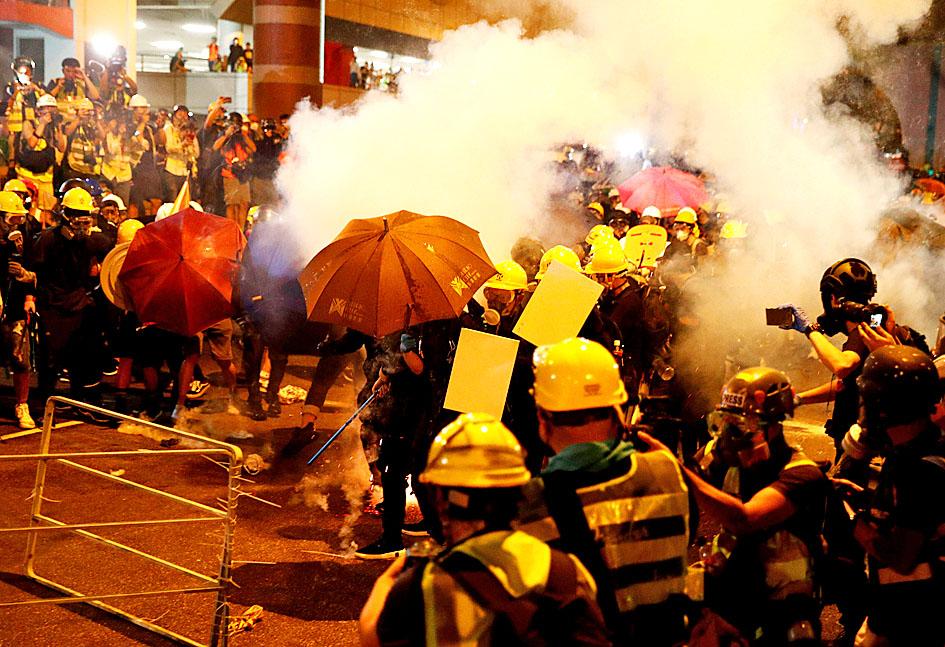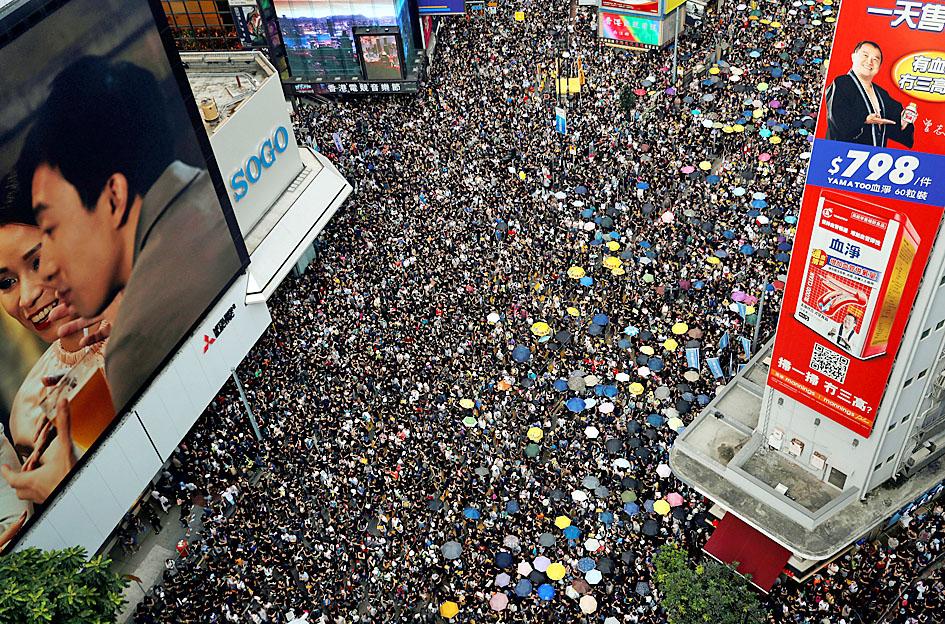The Ministry of the Interior on Tuesday announced plans to allow jobseekers from Hong Kong and Macau to extend their residency permit for up to one year, making it easier for people from the territories to stay in Taiwan.
The draft amendments posted on the ministry’s Web site aim to bring regulations governing residency for people from the territories in line with recent changes to the Act for the Recruitment and Employment of Foreign Professionals (外國專業人才延攬及僱用法) promulgated on July 7 to ease barriers to residency for foreign professionals.
According to the draft, people from Hong Kong and Macau who are studying and working in Taiwan would be allowed to extend their residence permits for six months while looking for a job, followed by another six-month extension if needed.

Photo: Reuters
Foreign professionals who have completed an advanced degree in Taiwan could also obtain permanent residency one or two years earlier, depending on whether they have a master’s or doctorate degree.
Currently, applicants for permanent residency must have stayed in Taiwan for at least 183 days each year for five consecutive years after graduation, and prove they have made an average monthly income of at least twice the minimum wage during the final year of that period.
The National Immigration Agency is accepting comments or suggestions about the amendment until Nov. 26.

Photo: Reuters
If passed, the rules could take effect as early as early next year.
The proposals come as Hong Kong authorities expand a crackdown on trade unions, charities, film and professional associations — including for journalists — that engage in what the government deems “political” activities.
Along with the UK, Taiwan has become a favored destination for Hong Kongers.
A record 10,800 Hong Kongers relocated to Taiwan last year, and 6,150 gained residency from January to last month, National Immigration Agency data showed.
Hong Kong closed its representative office in Taipei in May and has all but shut down Taiwan’s office in the former British colony.
While President Tsai Ing-wen (蔡英文) has been a vocal advocate of Hong Kong’s pro-democracy protesters, her government has been criticized by advocates who say that Hong Kongers still face too many administrative hurdles when trying to find work and live in Taiwan long-term.

CHAOS: Iranians took to the streets playing celebratory music after reports of Khamenei’s death on Saturday, while mourners also gathered in Tehran yesterday Iranian Supreme Leader Ayatollah Ali Khamenei was killed in a major attack on Iran launched by Israel and the US, throwing the future of the Islamic republic into doubt and raising the risk of regional instability. Iranian state television and the state-run IRNA news agency announced the 86-year-old’s death early yesterday. US President Donald Trump said it gave Iranians their “greatest chance” to “take back” their country. The announcements came after a joint US and Israeli aerial bombardment that targeted Iranian military and governmental sites. Trump said the “heavy and pinpoint bombing” would continue through the week or as long

TRUST: The KMT said it respected the US’ timing and considerations, and hoped it would continue to honor its commitments to helping Taiwan bolster its defenses and deterrence US President Donald Trump is delaying a multibillion-dollar arms sale to Taiwan to ensure his visit to Beijing is successful, a New York Times report said. The weapons sales package has stalled in the US Department of State, the report said, citing US officials it did not identify. The White House has told agencies not to push forward ahead of Trump’s meeting with Chinese President Xi Jinping (習近平), it said. The two last month held a phone call to discuss trade and geopolitical flashpoints ahead of the summit. Xi raised the Taiwan issue and urged the US to handle arms sales to

State-run CPC Corp, Taiwan (CPC, 台灣中油) yesterday said that it had confirmed on Saturday night with its liquefied natural gas (LNG) and crude oil suppliers that shipments are proceeding as scheduled and that domestic supplies remain unaffected. The CPC yesterday announced the gasoline and diesel prices will rise by NT$0.2 and NT$0.4 per liter, respectively, starting Monday, citing Middle East tensions and blizzards in the eastern United States. CPC also iterated it has been reducing the proportion of crude oil imports from the Middle East and diversifying its supply sources in the past few years in response to geopolitical risks, expanding

Pro-democracy media tycoon Jimmy Lai’s (黎智英) fraud conviction and prison sentence were yesterday overturned by a Hong Kong court, in a surprise legal decision that comes soon after Lai was jailed for 20 years on a separate national security charge. Judges Jeremy Poon (潘兆初), Anthea Pang (彭寶琴) and Derek Pang (彭偉昌) said in the judgement that they allowed the appeal from Lai, and another defendant in the case, to proceed, as a lower court judge had “erred.” “The Court of Appeal gave them leave to appeal against their conviction, allowed their appeals, quashed the convictions and set aside the sentences,” the judges